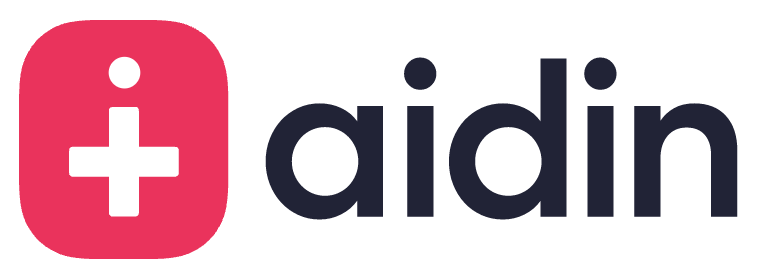 Post acute care is an integral part of the full care spectrum for patients. It enables patients with improved quality of care and hospitals and providers with a cost-effective service model. These services support significant short- and long-term benefits for patients, helping to prevent unnecessary hospital readmissions, avoid premature admission to long-term care facilities, and promoting the functional recovery in older adults.
Post acute care is an integral part of the full care spectrum for patients. It enables patients with improved quality of care and hospitals and providers with a cost-effective service model. These services support significant short- and long-term benefits for patients, helping to prevent unnecessary hospital readmissions, avoid premature admission to long-term care facilities, and promoting the functional recovery in older adults.
Unfortunately, however, these facilities have been historically disconnected from the healthcare system. Antiquated systems used by hospitals and other providers make it difficult to manage care transitions and refer patients to one another. In some cases, patients try to find the best post acute care route for themselves with little understanding and visibility of their options. Even worse, hospitals don’t have access to data to point their patients in the right direction.
This lack of data and disjointed communication has created a significant challenge for post-acute facilities to generate a steady flow of patient referrals. Even with new referrals coming in, the inherent lack of communication and coordination of care between post acute facilities and hospital systems perpetuates readmission rates and poor patient outcomes. The budding standard of value-based care is offering an incentive for hospitals to fine tune their discharge processes and create stronger partnerships with PACs. For PACs, this shift from reimbursement based on services to patient outcomes opens the door to receive quality referrals from hospitals enabling streamlined communications between the various stages of care and help hospitals lower costs around readmissions and length of stay.
Aidin’s referral management software fulfills an immediate need to support all players in the healthcare ecosystem and will reward facilities that deliver quality patient care. Aidin allows post-acute facilities the opportunity to establish themselves in the market by alleviating a number of issues that previously kept them from it.
How Post Acute Facilities Get Doctor Referrals
1. Earn trust and establish partnerships
Forging strong partnerships is the first step to creating a more holistic healthcare ecosystem. There is a huge need for hospitals to communicate better with post acute facilities so they understand how to direct patients to the most appropriate next stage of care. Beyond finding a direct line to hospitals, post-acute facilities need to establish themselves as a reputable healthcare partner by leveraging patient data. By showcasing their impact through patient outcomes and making this data more accessible to hospitals, they can better position themselves to attract more referrals.
Aidin brings together providers, payors, and patients to work together and share secure information in order to deliver more targeted patient care. Based on a badge reward system, community members earn digital badges for responsiveness, reliability and care quality. Aidin users are able to create customized networks of trusted partners by sorting high quality available partners to the top of staff search results and Patient Choice lists.
2. Deliver better patient care
Poor patient outcomes can stem from a lack of coordinated communication among hospital and post acute facilities or a loss of important information during the transition. Now, hospitals have a financial incentive to pay closer attention to the downstream care network to ensure their patients record positive care outcomes. On the other side, post acute care facilities want to make sure they don’t have to send patients back to the hospital for further acute care services.
To ensure that your post-acute facility can meet the needs of incoming patients, Aidin users are able to set their insurance coverage options, clinical needs and service areas. Once listed, Aidin will help post acute facilities attract the best referrals for their organization.
3. Streamline prior authorization and payments
When it comes to the discharge process, either the hospital or post-acute facility is in the dark about the status of the prior authorization—rarely are they on the same page. There is currently little visibility that either facility has to understand what is still needed to keep patients moving through the care journey, causing unnecessary delays.
Aidin expedites the payment process by addressing avoidable authorization and discharge disruptions. Stored in one inbox, Aidin users can keep track of all inbound and outbound communications for referrals, authorizations, documents, and signatures. There is also a built-in timer for prior authorization to ensure both the healthcare organization and payor are going to be held accountable for their turnaround times.
4. Improve staff efficiency
Intake teams are at the mercy of the systems in place and the reliability of other healthcare partners and payors to ensure the consistent flow of referrals, making it much more difficult to maintain productivity and efficiency.
Aidin offers intake teams more structured workflows to better track when and where their responses are needed. At the same time, they can invite referral sources to follow along as they request authorization and begin care. Additionally, leadership is granted higher visibility to their teams’ performance with access to real-time data and comparative analysis.
5. Gain marketing insight
The post acute care market is projected to reach 473.66 Million by 2026, but is highly fragmented. With the focus on cost and outcomes, this shift to value-based care is forcing all players within the care spectrum to rethink their strategy to drive value, including post acute care. PAC leaders are in need of market insight to proactively plan and staff as needed to differentiate themselves from the competition.
Utilizing Aidin’s zip-code specific supply-and-demand data and market insights help post acute facilities make better strategic business decisions and understand what referrals they have been missing out on. In this digital auction environment, post acute facilities are able to glean from patient care data in order to grow and innovate as an organization.
In a value-based care model, healthcare systems are reliant on recognition and data to validate their performance. With Aidin, providers and payers can work together and hold one another accountable to improve patient outcomes. Want to start collaborating with referral sources? Connect with us to learn more about Aidin’s offerings.

